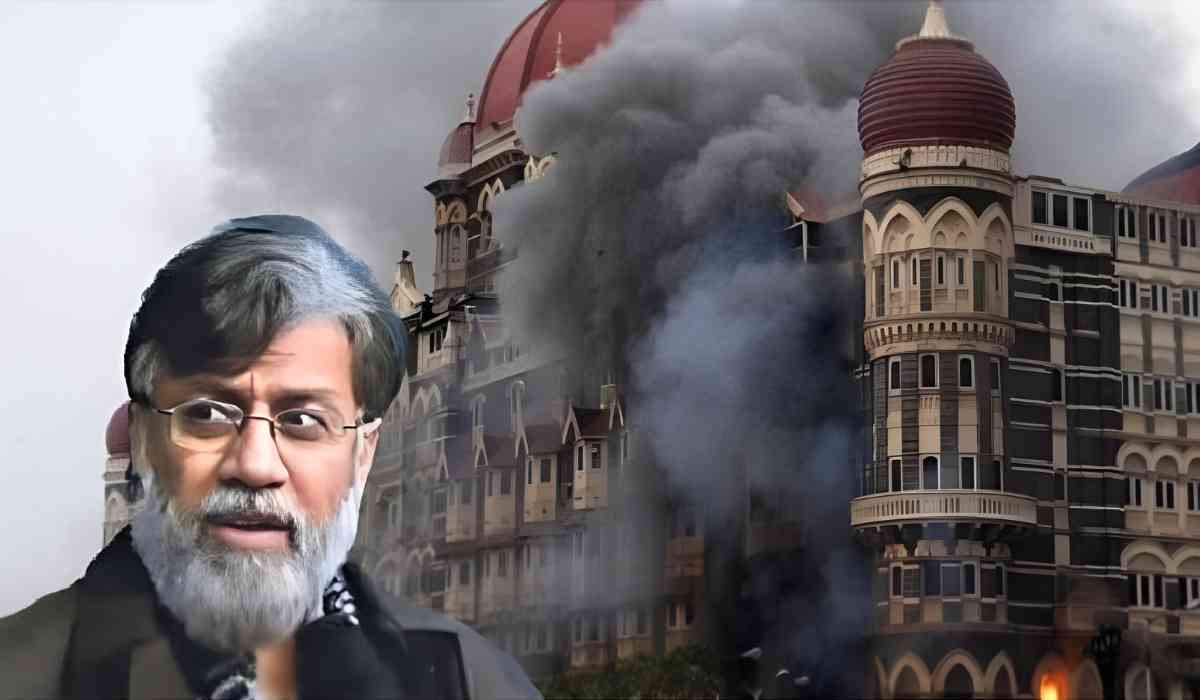The recent approval by the US Supreme Court for the extradition of Tahawwur Rana, a key figure in the 2008 Mumbai terrorist attacks, raises significant questions about Pakistan's role in international terrorism. This decision marks a crucial moment in the long-standing pursuit of justice for the victims of the attacks, which claimed 166 lives, including six Americans.
Extradition Details
On January 25, 2025, the US Supreme Court dismissed Rana's final appeal against extradition, affirming India's request to prosecute him for his alleged involvement in orchestrating the attacks alongside David Coleman Headley, a Pakistani-American operative linked to the Lashkar-e-Taiba (LeT) terrorist group. Rana, a Canadian citizen of Pakistani origin, had previously lost legal battles in various US courts, including the Ninth Circuit Court of Appeals. Rana's extradition is seen as a diplomatic victory for India, which has consistently sought accountability for the 26/11 attacks. The Supreme Court's ruling underscores the importance of international cooperation in combating terrorism and ensuring that perpetrators are brought to justice.
Implications for Pakistan
The extradition of Rana not only highlights India's commitment to addressing terrorism but also puts Pakistan's involvement under scrutiny. The Mumbai attacks were executed by ten terrorists from Pakistan, and Rana's connections to LeT raise concerns about how deeply embedded these networks are within Pakistani society and governance. His association with Headley, who conducted reconnaissance missions for the attacks, further complicates Pakistan's narrative concerning its fight against terrorism.
Questions Arise
- How will Pakistan respond to this extradition? The implications of Rana's extradition could strain diplomatic relations between India and Pakistan further.
- What does this mean for future US-Pakistan relations? As the US continues to support India's efforts against terrorism, it may lead to increased pressure on Pakistan to take more definitive action against terror groups operating within its borders.

What are the public reactions in Pakistan to Rana's extradition?
Public reactions in Pakistan to the extradition of Tahawwur Rana have been mixed, reflecting a range of sentiments from outrage to concern over implications for national security.
Outrage and Denial
Many in Pakistan's political and social spheres have expressed outrage at the extradition decision, viewing it as a politically motivated move by India to further its narrative against Pakistan. Some commentators argue that the extradition is an attempt to shift blame onto Pakistan for the 2008 Mumbai attacks, despite the lack of concrete evidence linking the state to Rana's actions. This sentiment is echoed by various political analysts who suggest that the move could exacerbate tensions between India and Pakistan.
Concerns Over Sovereignty
There are also significant concerns regarding national sovereignty. Critics argue that Rana's extradition undermines Pakistan's legal system and sovereignty, suggesting that it sets a precedent for foreign influence over domestic legal matters. Political leaders and legal experts have voiced apprehension that this could lead to further extraditions of Pakistani nationals based on allegations from other countries, particularly India.
Security Implications
The extradition has prompted discussions about the broader implications for security within Pakistan. Some analysts warn that this could lead to increased scrutiny of Pakistani citizens abroad and may embolden international efforts to target individuals linked to alleged terrorist activities. This concern is compounded by fears that it may provoke retaliatory actions against Pakistan, both diplomatically and in terms of security operations.
Media Coverage
Pakistani media has also been active in covering the extradition, with some outlets emphasizing the need for a thorough investigation into Rana's connections and the circumstances surrounding his alleged involvement in terrorism. Others have criticized the US judicial system for facilitating what they perceive as a biased extradition process.In summary, public reactions in Pakistan to Rana's extradition are characterized by a blend of outrage, concerns about sovereignty, and apprehension regarding national security implications. The situation continues to unfold as discussions around accountability and international relations persist.

Conclusion
The US Supreme Court's decision to extradite Tahawwur Rana serves as a pivotal moment in the ongoing battle against terrorism linked to Pakistan. It not only advances India's quest for justice but also raises critical questions regarding Pakistan's role in fostering an environment where such acts of violence can occur. As Rana prepares to face trial in India, the international community will be watching closely to see how this situation unfolds and what it means for regional stability and security.
With inputs from agencies
Image Source: Multiple agencies
The views expressed are personal to the author and do not reflect the platform's opinion of the same.
© Copyright 2024. All Rights Reserved Powered by Vygr Media.

























